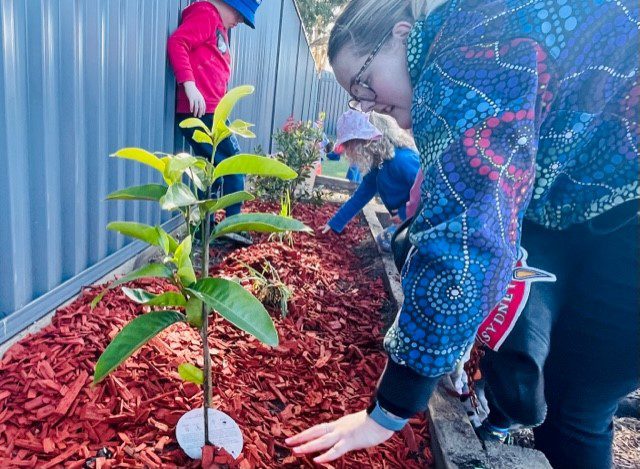
“Is this our land, Mummy?”
It’s the kind of big-hearted question a child might ask during a walk, a story, or even while playing in the dirt. As adults, we often pause, because we want to get it right.
NAIDOC Week gives us an opportunity to start that conversation with care. And the truth is, you don’t need to have all the answers. You just need to be open to learning with your child.
What Is NAIDOC Week?
NAIDOC Week is a national celebration of the history, cultures, and achievements of Aboriginal and Torres Strait Islander peoples. While the acronym originally stood for the National Aboriginal and Islanders Day Observance Committee, today NAIDOC Week is recognised as a time for all Australians to reflect, listen, and celebrate.
For young children, it’s an opportunity to build a genuine connection to culture, Country, and community from the very beginning.
This Year’s Theme: The Next Generation - Strength, Vision & Legacy
The 2025 theme celebrates our children - the next generation of leaders, carers, and changemakers. It honours their strength, the vision of First Nations communities, and the legacy passed down through Elders and ancestors.
At Kids Academy, we see this theme in action every day. Through our Lifelong Learning Curriculum and our partnership with Wandana Aboriginal Education, children are supported to explore First Nations perspectives in age-appropriate, respectful and inspiring ways.
Not Sure Where to Start? That’s Okay.
Many parents tell us they want to celebrate NAIDOC Week but worry about saying the wrong thing or not knowing enough.
The most important thing to remember is: you don’t need to be an expert.
Children don’t need perfect answers, they need grown-ups who are willing to learn, wonder, and listen alongside them. That’s where real understanding begins.
Five Thoughtful Ways to Celebrate NAIDOC Week with Your Child
1. Read First Nations Stories Together
Books are a gentle and powerful way to introduce culture and connection. Try:
- Welcome to Country by Aunty Joy Murphy
- Somebody’s Land by Adam Goodes and Ellie Laing
- Baby Business by Jasmine Seymour
You can also explore short videos and Dreaming stories via the ABC Kids NAIDOC Week collection.
2. Create Art Inspired by Nature
Encourage your child to use natural materials - leaves, sticks, stones - or paint with earthy colours like red, brown and yellow. It’s not about a perfect masterpiece, but about slowing down and noticing the world around you.
3. Explore Music and Movement
First Nations culture is deeply musical. Invite your child to move and dance to the sounds of clapsticks, didgeridoos or bush-inspired rhythms. Ask if they’ve learned any songs at their centre - they might be proud to teach you something new.
4. Ask Gentle Questions
Even little ones can start thinking about connection and culture:
“Who do you think looked after this land before we lived here?”
“What do you think Country means?”
“If you had a Dreaming story, what would it be about?”
These open-ended questions can lead to beautiful conversations.
5. Connect to Country
Go for a walk. Pick up litter together. Sit under a tree and listen to the birds. These small, quiet acts help build a lifelong respect for nature and the land, and for the people who have cared for it for tens of thousands of years.
What NAIDOC Week Looks Like at Kids Academy
At our centres, NAIDOC Week is just one part of our long-term commitment to cultural education, inclusion and reconciliation.
Through our Reconciliation Action Plan and our partnership with Wandana Aboriginal Education, our educators are supported to share stories, language, music, and art that honour Aboriginal and Torres Strait Islander perspectives every day.
It’s not a one-week focus. It’s a daily practice of listening, learning and growing together.
A Journey That Starts Early
At Kids Academy, we believe that early childhood is the most powerful time to lay the foundations of empathy, inclusion, and cultural understanding.
And as a parent, you play a key role in that journey. You don’t need a script or a perfect plan, just curiosity, care, and a willingness to learn. We’re proud to walk alongside you.